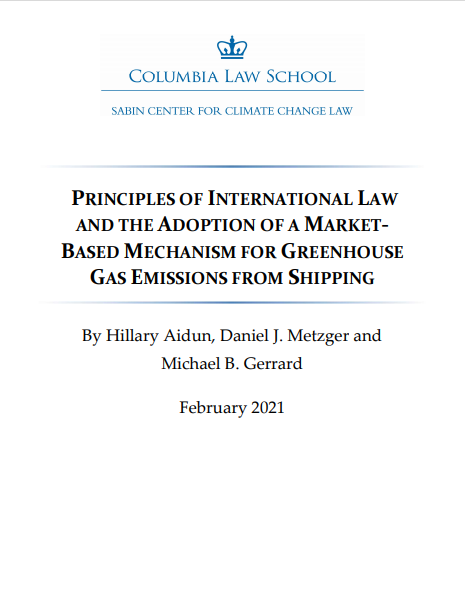
When IMO negotiations break down, where do we turn to for guidance? In adopting the Initial Strategy on GHG emissions reduction in 2018, all IMO member states committed themselves to be guided in their decision-making by an agreed set of Guiding Principles. This new Columbia Law School White Paper examines these Principles as they stand at international law.
Achieving the Paris Agreement’s goal of limiting warming to “well below” 2°C above pre-industrial levels requires urgent and serious steps to reduce greenhouse gas. Shipping currently makes up nearly 3% of anthropogenic greenhouse gases (GHG) released worldwide, and those emissions are on track to increase. But the transnational nature of the industry makes it difficult for any state to address the issue alone, and little has been done at the international level to either force or incentivize shipping companies to decarbonize.
In a new white paper, published online, the Sabin Center examines nine principles of international law that establish and frame the International Maritime Organization’s (IMO) authority to adopt a market-based mechanism to reduce shipping emissions. The polluter pays principle provides strong support to adopt such a measure, which could require whoever causes emissions to cover the costs those emissions impose on others. And other principles of international law will work to ensure that any measure is sensitive the different contributions parties have made to climate change, views any uncertainties through the lens of the precautionary principle, and respects fundamental rights of all.
Prior Sabin Center white papers have explored The Legal Bases For IMO Climate Measures and the Authority of Pacific Island States to Regulate Greenhouse Gases from the International Shipping Sector. For more information about the Sabin Center’s publications visit our searchable library here.
Posted on - 2021-05-27